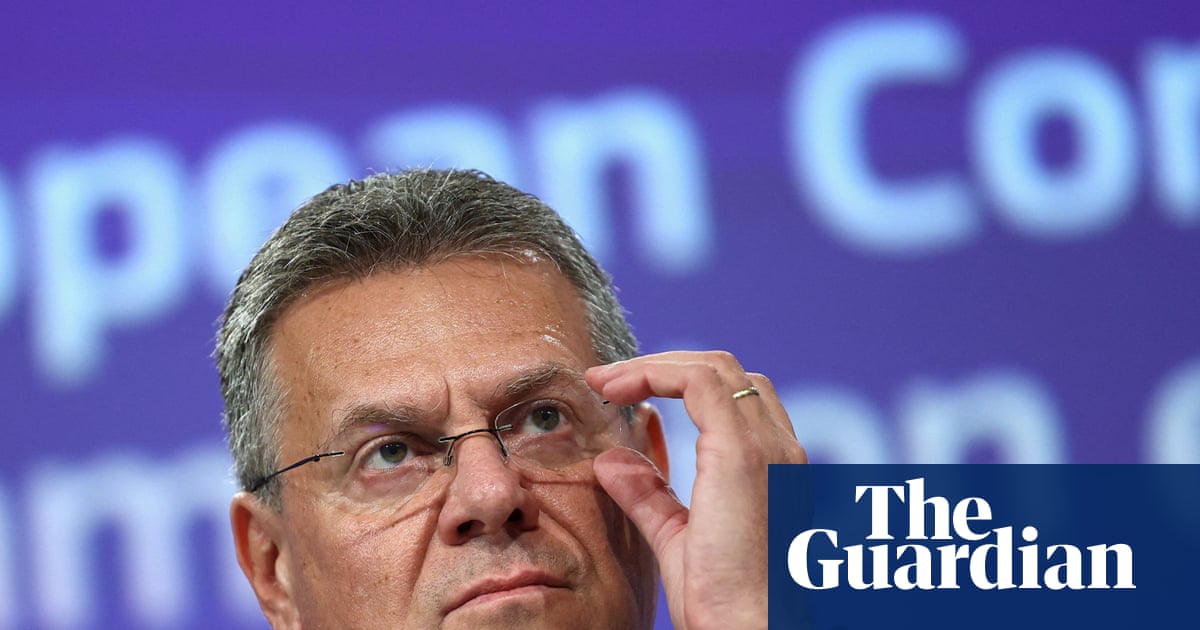The EU executive has called for a suspension of free trade with Israel and sanctions on two far-right Israeli ministers in response to the humanitarian crisis in Gaza.
Ursula von der Leyen had already floated the proposal to suspend the trade parts of the EU-Israel association agreement last week as the European Commission faced intense pressure for greater action amid criticism that it was not using its economic leverage to influence the Israeli government.
There is, however, no certain majority from EU member states for the proposals outlined on Wednesday, because Germany, one of Israel’s key allies, has long been reluctant to take such steps.
The proposals include suspending Israel’s preferential access to the European market by reimposing tariffs on some goods, and freezing mutual benefits related to bidding for public contracts and the protection of intellectual property rights.
The commission also called for sanctions on Itamar Ben-Gvir and Bezalel Smotrich, violent Israeli settlers in the West Bank and 10 Hamas leaders.
The plans were presented as Israeli forces pressed ahead with their offensive in Gaza City, deepening a conflict that has killed nearly 65,000 Palestinians since Hamas attacked Israel on 7 October 2023, killing more than 1,200 people and taking 250 hostages.
The EU trade commissioner, Maroš Šefčovič, said the proposal meant goods from Israel would be charged at duties equivalent to countries with no free-trade agreement with the bloc. “We regret having to take this step. However, we believe it is both appropriate and proportionate given the ongoing humanitarian crisis in Gaza,” he said.
Israel’s foreign minister, Gideon Sa’ar, wrote on X that the European proposals were “morally and politically distorted, and it is to be hoped that they will not be adopted, as has been the case so far”.
The commission has been unable to secure the necessary majority for more modest plans to suspend EU research grants to Israeli organisations. The EU foreign policy chief, Kaja Kallas, suggested on Wednesday that the same divisions remained.
“Although we see that the public opinion in member states is really shifting because of the suffering in Gaza … on a political level … I think the political lines are very much in the place where they have been so far,” she said.
For the preferential trade or research grants suspensions to pass, Germany or Italy would have to lend their support. Both measures depend on finding a weighted majority of 15 out of 27 member states representing at least 65% of the EU’s population.
Asked about the trade proposals, a German government spokesperson said Berlin had “not yet formed a final opinion on them”.
after newsletter promotion
The sanctions against the Israeli ministers and Hamas leaders require unanimity. Hungary has previously blocked some EU sanctions against Israeli settlers. The commission had shied away from targeting Ben-Gvir and Smotrich in anticipation of a veto from Budapest, a close ally of Benjamin Netanyahu’s nationalist government.
The EU is Israel’s largest trading partner, accounting for 32% of Israel’s worldwide trade in goods. The EU-Israel association agreement, formalised in 2000, underpins the €68bn (£59bn) trading relationship and increases cooperation in research, environment and energy.
The reimposition of tariffs would affect €5.8bn of Israel’s exports, resulting in about €227m in duties.
Kallas suggested she did not support attempts to exclude Israel from Eurovision, after Spain became the latest country to say it would boycott the song contest if Israel took part.
Asked about the issue, she said EU measures were intended to put pressure on the Israeli government to change course on Gaza, not to punish Israel or the Israeli people.
“All these steps that go to the direction of punishing Israeli people, I think are wrong and we are not really proposing them,” she said.
